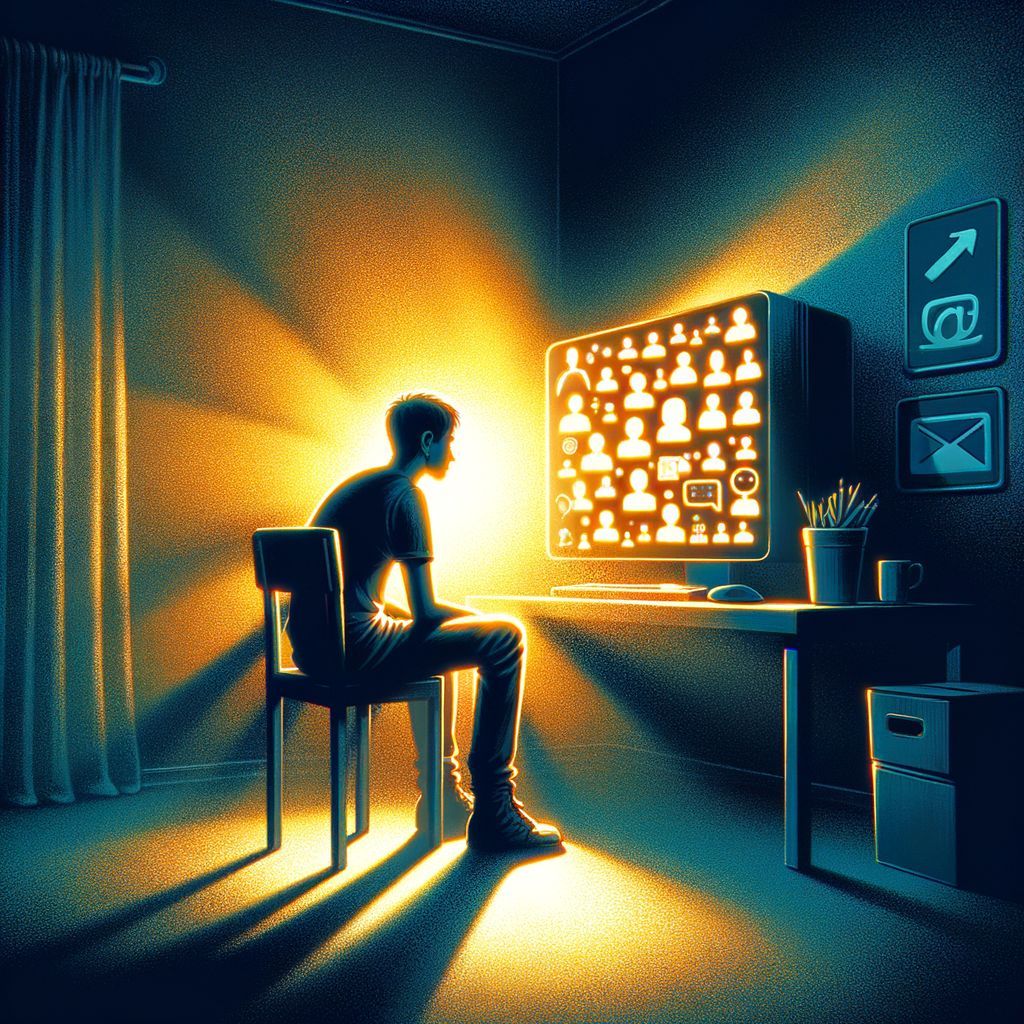

Image by DALL·E Pic: Midjourney
Editors' Note: Many Fast News images are stylised illustrations generated by Dall-E. Photorealism is not intended. View as early and evolving AI art!

Online, young men seek,
In a world both harsh and bleak,
A place to be meek.

Himfluencers: eSafety Commissioner reveals young men lack positive role models online
A new study by the eSafety Commissioner has revealed that young men are grappling with understanding masculinity due to a dearth of positive online role models.
The research, conducted in conjunction with Deakin University and the Queensland University of Technology, involved over 100 young men aged 16 to 21 years, utilising 25 focus groups and 25 individual interviews.
The study found that online environments are a significant source of community, acceptance, and friendships for young men. However, their conversations about their place in the world are often negative. Young men both experience and perpetuate online harms, with some describing online gaming communities as places where it is normal to respond to abuse with abuse.
The research also highlighted that young men are under constant pressure to conform to narrow and traditional ideals of manhood. The eSafety Commissioner, Australia's independent regulator for online safety, is now consulting with relevant practitioners to translate these insights into practical online safety advice.
eSafety Commissioner Julie Inman Grant said: "Navigating adolescence and early adulthood has always been a confronting rite of passage, but this is one of the first generations to grow up in a world straddling the offline and online dimensions, with the online world becoming an increasingly potent force."
Professor Simon Rice, Global Director, Movember Institute of Men's Health, said: "Young men are navigating significant cultural and social uncertainty. Online content and influencers offer them immediate, unregulated, and sometimes misleading answers to the very stressors they face, wielding immense power to shape Australian young men for better or worse."
Josh Glover, a senior facilitator at The Man Cave, a preventative mental health and emotional intelligence organisation for boys and young men, shared his insights from his daily interactions with teenage boys. He said, "Underneath any veneer of confidence or bravado they project is a sincere desire to connect and explore who they could be - without fear of judgement or teasing."
Grant emphasised the collective responsibility to address these complex societal issues. She said, "There's a collective responsibility to help young men answer important questions about what constitutes healthy, respectful models of manhood and masculinity."
Partner Content from Salesforce
The AI Imperative: It’s Time for Financial Services to Embrace AI
How Trusted AI Opens Up New Possibilities for Customer Service










